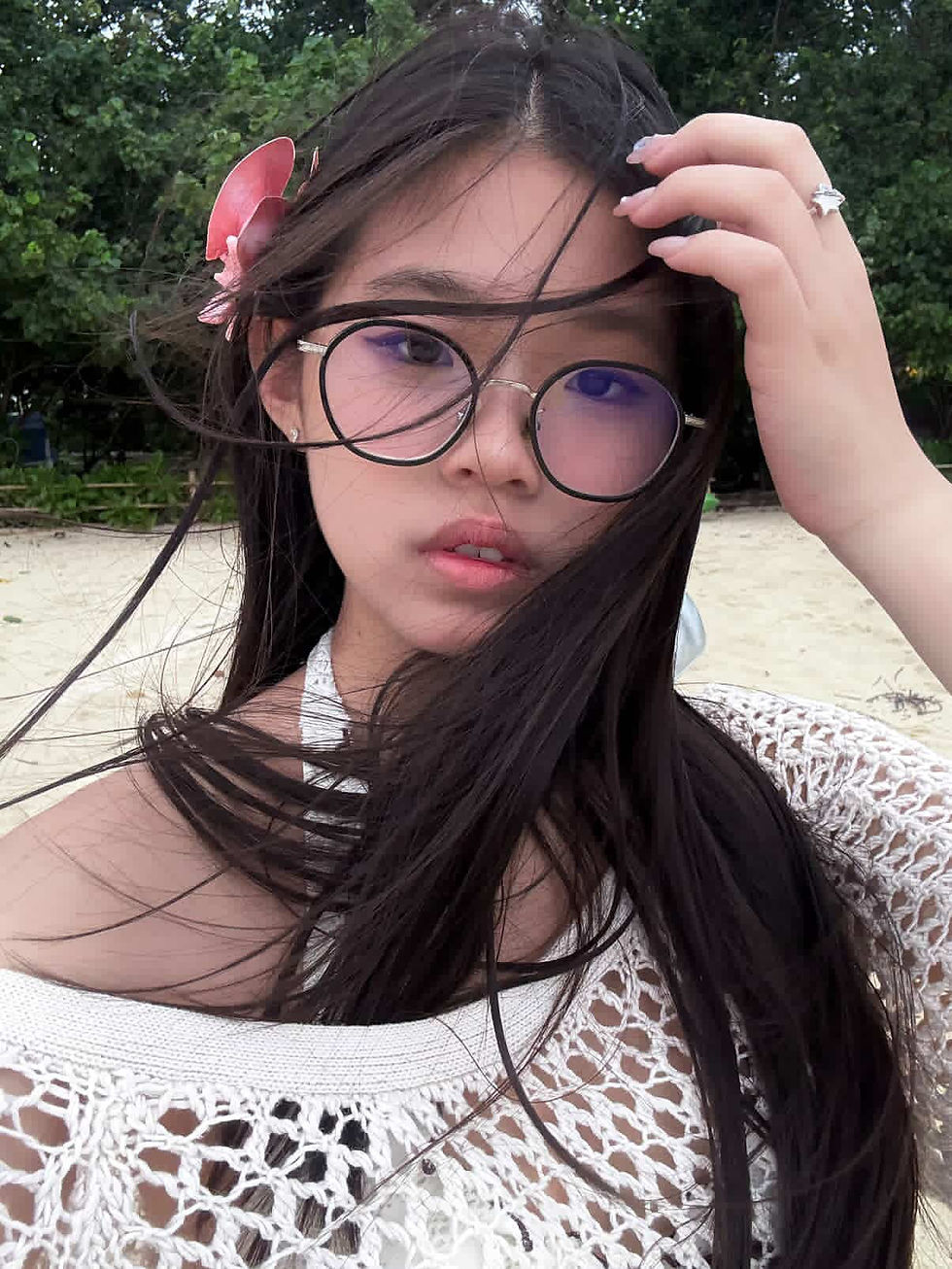Asians Around Appalachia: Sophia Shiu
- aaajournal25
- Aug 19, 2025
- 4 min read
Sophia Shiu is a dual citizen of Hong Kong/the United States and is currently a freshman at Marshall University on a full ride scholarship. In the future, she intends to use the early assurance program at Marshall to go to the Joan C. Edwards School of Medicine. In high school she Sophia helped to lead the Cabell Midland Science Olympiad with two first place state finishes in her high school career in Anatomy and Physiology. Sophia also co-founded HOSA at Cabell Midland and helped it grow to become one of the largest chapters in the state. With two second place finishes in Public Service Announcement and one first place state finish in Behavioral Health and the only one to qualify for internationals in the event within the state, she intends to help spread HOSA to the collegiate level at Marshall University. In addition, she played an active role in the CMHS robotics team, Leo's Club, and NHS.
In the summer, she makes an annual commitment to volunteer at St. Mary's Hospital and was recently awarded their $4,000 scholarship and accrued over 250 hours volunteering/shadowing in departments including Interventional Radiology and Pathology. On her visits back to Hong Kong, Sophia also volunteers at local English tutoring centers to help elementary and middle school students become fluent and prepare for the GSE (SAT/AP equivalent).

Interview:
Have you ever felt out of place due to your identity? If so, where did you find a sense of community?
The first time that I ever recall feeling out of place was my first day of pre-k after moving back to America from Hong Kong. The teacher had all of the students gather in the center of the classroom, and after a long speech that I couldn't understand in a brand new language, all the students around me dispersed in a flurry of sounds and motions. Only I was left alone still in the middle of the room with no clue what had just happened. That feeling of confusion and exclusion festered for a moment before 5 year old Sophia burst into tears. That was the first time, but it certainly wasn't the last. As I now understand, the teacher had just given the class their first recess, but with minuscule knowledge of English, I had no clue how to make friends. It was only in middle school, when my English was fluent, and even outpaced those of my American peers, did I finally find a friend group of my own. It was nowhere near perfect and came with all the drama that you could expect from a middle school friend group, but it was the first time that I could allow my race and first language to become just a footnote instead of the entire book.
Can you tell us about one of your stories related to being an AppalAsian? (e.g. household traditions, bullying/harassment, family business, etc.)
At the beginning of the pandemic, our family business was forced to shut down due to government mandates. My parents came to a verbal agreement with our landlords over a reduced rent price for our family business. A few months later, they sold the land to a different company that did not receive notice of the reduced rent prices and we were never notified that they expected the pre-COVID rent prices every month.
We had been closed for more than half a year when we got a notice that we had mountains of unpaid rent and late fees. We were already at a point where we were draining every account that we had to pay the monthly rent on the business, so when we got the notice, there was no choice but to partially open the business again despite the fact that the COVID vaccine was still half a year away. There were no funds to hire anyone, so at the age of 12, I began to work 12 hour days. It was grueling and harder than anything that I had ever done before. During the day, there would be people who came in merely to hurl racist insults in my face while at night, I tried desperately to massage the ache out of my feet.
What is one Appalachian / Asian American related policy issue that’s important to you and why? (e.g. lack of representation, barriers to education/healthcare, economic inequality, etc.)
Many Asian American households have a fundamental barrier to entry towards healthcare. With 18% of Asian Americans being self-employed, 7% percent higher than the national average, it also means that many AAPI households don't have healthcare insurance, unless they're willing to pay $500 a month per person. Living in Appalachia only exacerbates this issue as there is a significant lack of proper medical facilities in rural areas, with emergency services often having to drive upwards of an hour to reach an adequately prepared hospital for certain medical emergencies.
What is one piece of advice you would give to AppalAsians struggling to fit in?
While it may be difficult now, there will be a time in the future where you realize that being Asian American does not make you an outsider to a community. It just gives you another community to be a part of.
